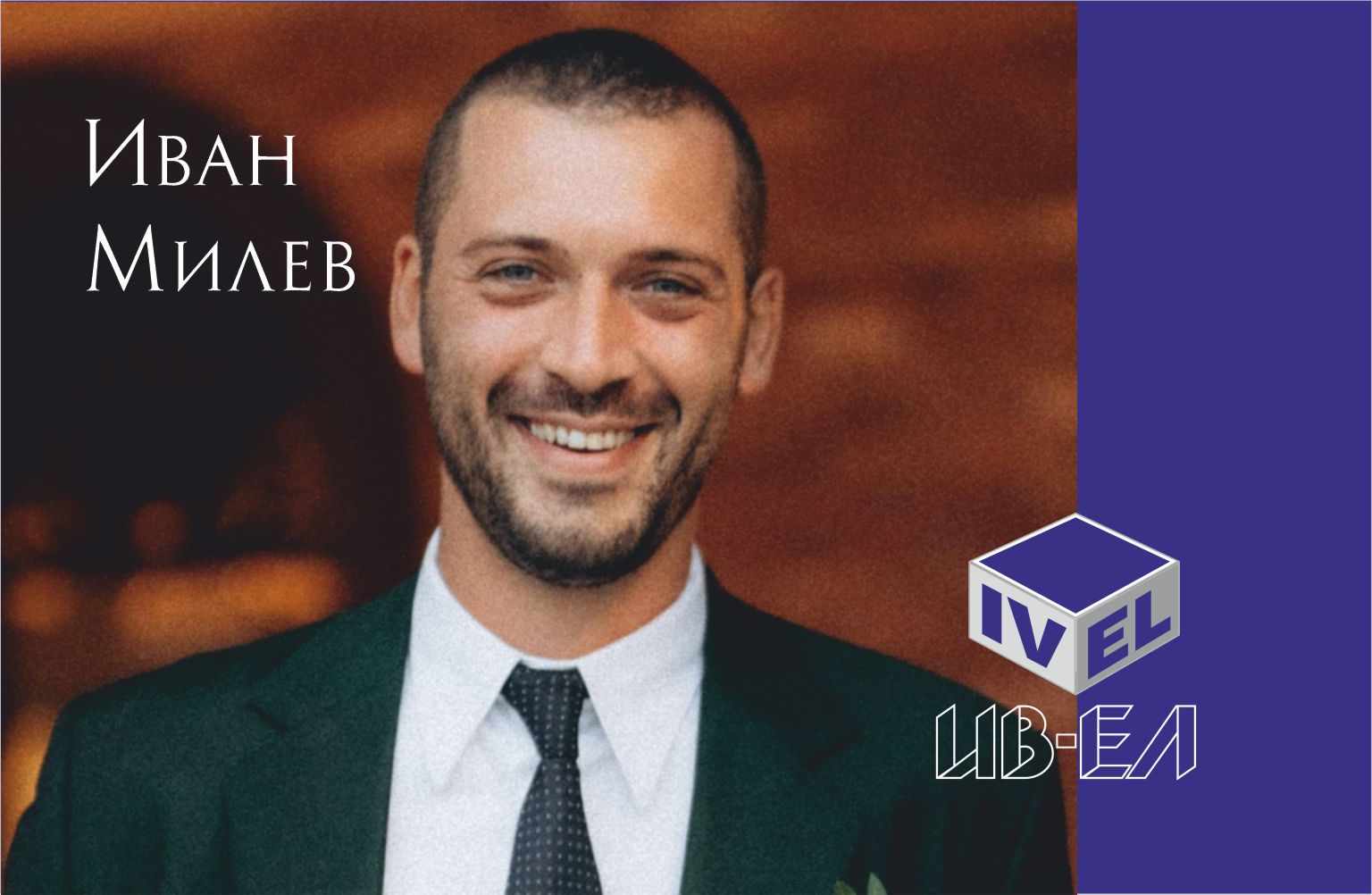Ivan Milev, manager and partner at IV-EL Ltd.
IV-EL Ltd., a family company established in 2000, offers materials for furniture production, supplies, accessories and fittings. The company represents and distributes leading manufacturers from Europe and Asia in the Bulgarian market. The main warehouse and sales base of IV-EL is located in Dobrich and covers a total area of 28500 sq.m., 11000 sq.m. In addition, the company owns a base and shops in Sofia. In 2004, the company opened its branch in Dobrich and invested in constructing and validating an ISO 9001:2000 quality management system to increase customer service.
K2 Ltd. is an established company specializing in the design, manufacture and project management of hotel and DIY furniture. The company has two production divisions. The first is for serial furniture production for the DIY sector, and the second is for complete interior projects for public buildings - hotels, hostels, hospitals, and airports. Both company divisions are equipped with state-of-the-art machinery, and the multidisciplinary team covers the entire process from the ground up - from drawing to the actual commissioning of the project. As a result, over the last ten years, more than 30 hotels in numerous European countries, such as Germany, Austria, the Netherlands, and the UK, have been renovated and furnished. K2 started in 1992 as a small carpentry workshop for the local community under the name Sequoia Ltd. In 1994 and 2002, it gradually expanded its scale, and after significant changes in the company structure, the company was renamed K2 Ltd in 2007. By then, it had expanded its capacity almost threefold by purchasing new machinery, moving into a new production building and expanding its team to over 70 people. Today, the machinery fleet has an average age of fewer than four years, an area of over 3,000 sqm and over 90 people working force.
Ivan Milev, 30 years old, has been running the family company IV-EL Ltd since 2017 and is a partner in K2 Ltd. He graduated from the University of the West of England in 2014 with a degree in economics.
***
You took over the family business so young. What was the biggest challenge at the beginning of your management career?
I took over the company's management relatively fast and unplanned after the unexpected loss of my father and founder of the company. Under the circumstances, I had to quickly get to know the specifics of our business and customer base. In the beginning, the most challenging part was consolidating the positions my father had established for the past 17 years. With such an abrupt change in management, the competition tried to take advantage of the situation. However, thanks to the company team and my family, we overcame the problems that came our way, stabilized the company and moved forward confidently.
What about the challenges today? What are the difficulties, and how do you overcome them?
The difficulties we face are familiar to all companies at the moment. As a trading company, we have been susceptible to supply chain disruption and inflationary pressures over the past year. In addition, planning for inventory turnover and customer service in the normal pre-holiday timeframe takes much work. As a result, we had to invest in warehouse management solutions and increase inventory levels to address these challenges.
Sustained high and volatile electricity prices are another issue we are looking at ways to address. Our production operates in shifts, which leads to energy consumption during peak prices. The compensations that the state grants are a relief but not a solution per se, as the energy profiles of individual companies vary greatly. Compensations are calculated on the average price for the month, and the difference between the average price and peak hours is noticeable. This is why we invested in installing a 400kW grid-tied PV plant n the spring of 2022, which covers about 50% of our needs annually.
Does the state/municipality help or hinder?
Over the years, we have met the support of the Municipality of Dobrich for various cases and initiatives. However, on a national level, the state is not actively involved in two major issues - the administrative burden and the regulations. The state administration needs to be better digitized, and the bureaucracy needs to be more manageable.
We expect decisions and implementation strategies with the European Green Pact in the next few years. Future regulatory rules will have consequences for the coming decades, and the government has given no indication that these negotiations are ranked among their top priorities. The decisions regarding the circular economy are crucial and are potentially damaging and burdensome for our future business processes.
How do you measure success? What do you define as success in the company's work?
As trite as it may sound, our customers' satisfaction gives me a great sense of success. Long-term partnerships are essential, and good words from our customers mean a lot to us. I consider "success" the long-term cooperation with some of the most established furniture manufacturers in the Bulgarian market.
The portfolio of your business includes K2 Ltd., specializing in the design and production of furniture. What is the family's part in the success of a company?
Business and family are interconnected and very subservient to each other. By devoting his time, energy and focus to developing a business, a person deprives his family of the above. A family business's success is directly proportional to the family's success and spirit. An unstable family cannot build a stable company, whereas the opposite is highly likely.
What is your recipe for success?
Always be honest with your partners and believe in the value of the product you offer.






